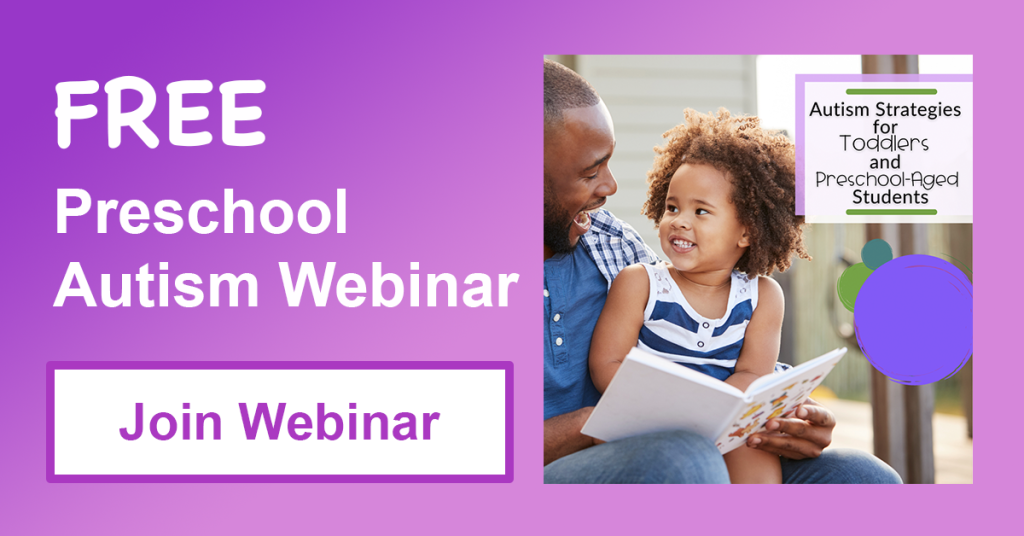“Well, I guess you better figure it out”....
Episode #121: Core Vocabulary and Typical Language Development with Allison Bean and Bethany Frick Semmler
One of my big goals with ABA Speech and The Autism Outreach Podcast is to disseminate information to help professionals stay in touch with the latest research and information in our field. When the article, Examining Core Vocabulary with Language Development for Early Symbolic Communicators, written by Dr. Allison Bean and Dr. Bethany Frick showed up in a professional Facebook group, I knew I had to know more.
Let’s first start by breaking down the definition of the vocabulary discussed in this article and today’s episode. Core Vocabulary is made up of 200–400 words that occur frequently across individuals, settings, and contexts – pronouns, verbs, auxiliary verbs, prepositions, and determiners (it, more, that, is).
Fringe Vocabulary is all the other words specific to an individual or activity – mostly nouns.
In their research, Dr. Bean and Dr. Semmler examined 7 core vocabulary lists, looking at the composition of the list, what portion were nouns/verbs/etc and when they are acquired under typical development. They found the lists to very well match the definitions in our field, and the majority of words were acquired by typical language learners from ages 25 – 66 months.
As we discuss the findings from their research, we consider how practitioners are choosing, using, and teaching words to AAC learners. AAC is still critical language development, just with a different modality. It is crucial to continue to use your clinical expertise and training in language development as you are choosing words and teaching your AAC users.
At some point in time, every single SLP will encounter a learner who uses AAC. How are you developing their language? How are you choosing meaningful words specific to the learner?
Dr. Bean and Dr. Semmler get to the heart of these important questions and have a great discussion about this important research!
#autism #speechtherapy
Today’s Guest:
Allison Bean is an Associate Professor at OSU. She received her B.A. from Iona College and her M.S. from New York Medical College in Speech-Language Pathology. During her clinical fellowship year at the Westchester Institute for Human Development, Allison participated in the Leadership in Education and Neurodevelopmental Disabilities (LEND) training program. She completed her Ph.D. in Communication Sciences and Disorders at the University of Iowa in 2010, followed by a year of postdoctoral training at the University of Wisconsin-Madison. In 2017, she received the Alumni Award for Distinguished Teaching and the Distinguished Undergraduate Research Mentor Award. Her research focuses on language development in nonspeaking individuals with autism spectrum disorders and outcomes in individuals who use augmentative and alternative communication. She has presented her work at national and international conferences.
Bethany Frick Semmler recently graduated from The Ohio State University with her PhD in Speech and Hearing Science. She received her B.S. in Spanish and Communication Sciences and Disorders from Missouri State University and an M.A. in Speech-Language Pathology from The Ohio State University. During the Masters program, Bethany was part of the Leadership in Education and Neurodevelopmental Disabilities (LEND) program. Her research is focused on early language learning on augmentative and alternative communication, and features on speech generating Devices.
What’s Inside:
- What is core vocabulary?
- What is fringe vocabulary?
- How to choose specific and meaningful words for your AAC user?
- AAC users and language development.
- Core vocabulary and acquisition with typical language development.
Mentioned In This Episode
—Allison F. Bean | Department of Speech and Hearing Science (osu.edu)
—ABA Speech: Learn About Current ASHA and ACE CEUs
—Thank you to our sponsor LINGGO. For more information, visit www.linggo.com or contact info@linggo.com
Rate, Review & Subscribe
If you found this podcast helpful, please consider rating and reviewing my show! This helps me to support more people — just like you!
If you have not done so already, subscribe to the podcast. This ensures that you do not miss an episode!
Listen on
Apple Podcasts
Listen on
Stitcher
Subscribe
via Email
You Might Also Like…
Episode #185: Replay: The Power of Joint Attention
Enjoy this replay from episode 62. Joint attention is...
Episode #184: 5 Tips For Dealing With Contentious IEP Meetings
Conflict is part of what we do...
